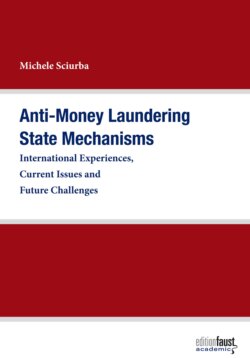Читать книгу Anti-Money Laundering State Mechanisms - Michele Sciurba - Страница 12
На сайте Литреса книга снята с продажи.
I.4.2 Consequences of the New Sanction Regime under the USA Patriot Act: BNP Paribas and Commerzbank
ОглавлениеThe prevention of the inflow and outflow of proceeds from crime or terrorist financing funds into and out of the US financial system is a central objective of the Patriot Act. Therefore, KYC requirements for financial institutions that must be strictly applied in the form of AML programs are a core area of the Act.55 The Patriot Act’s second core area is the Act’s extraterritorial effect. This area is closely linked to a comprehensive system of sanctions focused on financial institutions and countries that violate US-imposed sanctions. To illustrate the significance of this sanction regime, there are still several US sanction mechanisms in force against Iran, despite the Joint Comprehensive Plan of Action (JCPOA)56 concluded between Iran, China, France, Germany, Russia, the UK and the US on 14 July 2015. Although the US modified its sanctions to put them in line with the JCPOA on 14 January 2016, numerous transactions with Iran are still banned in the US.57 Consequently, transactions involving Iran that are cleared through the US financial system or using a foreign branch of a US financial institution are prohibited in the US.58
Section 317 of the Patriot Act gives District Courts jurisdiction over any foreign person or financial institution that commits a money laundering violation under US law, if parts or all of the transaction took place in the US, or in other words, if the foreign person or financial institution holds a bank account at a US financial institution. The procedures of the competent authority OFAC against the French BNP Paribas and the German Commerzbank are telling examples of this practice under the Patriot Act, the Code of Federal Regulations (CFR) and the International Emergency Economic Powers Act (IEEPA). In the end, both foreign banks accepted high penalties in the form of settlements despite the fact that they were regulated in Europe, fell under the protection of Regulation (EC) No. 2271/9659 against the extraterritorial effect of third party country legislation, and had not violated any EU law. Yet, the US declared it had jurisdiction on the grounds that the US dollar clearing took place via New York banks. In brief, the US could have frozen funds from BNP Paribas and Commerzbank in the US, imposed further sanctions against the two banks or finally denied them access to the US financial market under the Patriot Act’s provisions.
